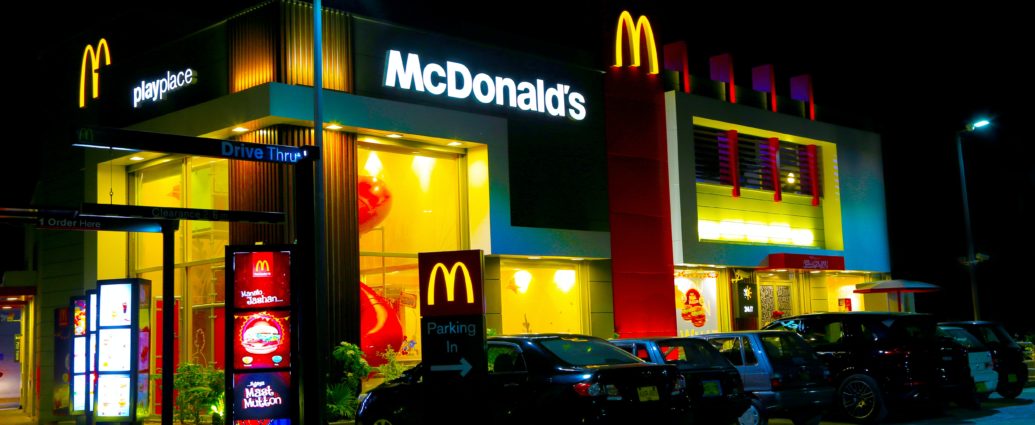Neve Gordon-Farleigh
COP26 undoubtedly has made us more conscious about climate change, the industries which contribute the most, and how our decisions shape the environment. In an environmental shift, McDonald’s has opened the first net-zero carbon restaurant in the UK.
Recycled tyres, used coffee beans, and recycled plastic bottles are all features included in the new McDonald’s site in Shropshire. Opened on Friday 10 December, the UK’s first net-zero carbon McDonald’s aims to be environmentally friendly with everything from the Drive-Thru, from the building, the furniture, and even how it’s powered.
Located in Market Drayton it’s said to act as a “blueprint for future restaurants around the country” whilst achieving McDonald’s ‘Plan for Change’.
https://twitter.com/McDonaldsUK/status/1470771484465541129?s=20
Achieving Net Zero
Net Zero refers to balancing the emissions we are creating with those already in the atmosphere; which can be achieved by reducing the amount of emissions we are creating. Achieving this is a priority for people and businesses all over the world in order to limit our impact on the environment and climate change.
Key design features of the new restaurant include wall signs made out of used coffee beans, cladding made from recycled IT equipment, and a biodiversity garden in collaboration with a local school. Outside the restaurant, thousands of plastic bottles have been recycled to create kerbs– a more environmentally conscious material which has reduced carbon emissions dramatically compared to using concrete. Tyres have also been used for the Drive-Thru lane, which not only produces less carbon but by having greater absorption, reduces the amount of rainwater being drained away.
Apart from design elements, the restaurant as a whole will be powered by two wind turbines and solar panels.
A spokesperson for McDonald’s, Beth Hart, commented on the new innovation saying:
“At McDonald’s we believe that our food needs to be served in restaurants that are sustainable for the future. Market Drayton is a big step towards making that a reality, enabling us to test and put into practice what a net zero emissions building, both in build and use, really looks like.”
Plans for the Future
This innovation is part of the chain’s ‘Plan For Change‘ which involves a variety of targets to make a positive impact on the planet whilst also ‘protecting and restoring nature’.
The biggest target for McDonald’s right now is to achieve net zero emissions in restaurants and buildings by 2030, before meeting the same goal across the entire business, by 2040. Some of the other targets include:
- Onwards from 2023, new and refurbished restaurants will have furniture made from recycled materials
- Building on what we’ve seen previously with paper straws, waste targets include renewable and recycled packaging by 2024, recycling and reusing waste from restaurants by 2027 and a reduction in packaging materials by 2030.
- Nature commitments including, a nature positive programme to launch by 2023, changes in agriculture by 2025 and initial deforestation targets to be met in 2026 before the whole business globally eradicates elements of deforestation from their business by 2030.
From Criticism to Climate Targets
Alongside other fast food chains, McDonald’s was previously criticised in 2019 for its lack of firm action against climate change.
Investors signed a letter to these chains with one signatory Eugenie Mathieu from Aviva Investors commenting, “From field to fork, investors want to understand which food companies are monitoring and minimising the long-term environmental risks in their supply chain. This engagement sends a clear message to the fast food sector that investors expect them to deliver sustainable supply chains.”
However, a McDonald’s spokesperson at the time defended the business by drawing attention to the fast-food restaurant’s targets of reducing greenhouse gases saying:
“This includes reducing emissions intensity in our supply chain through engagement and collaboration with suppliers and farmers – which we expect will prevent 150 million metric tons of greenhouse gas emissions from being released into the atmosphere by 2030,”
As one of the biggest fast-food chains in the world, McDonald’s is following in the footsteps of other businesses committing to meet climate targets to help make a positive step in the right direction. After COP26 starkly reminded us about the need for global action, the Market Drayton McDonald’s provides a snapshot into what this might mean for the future of the food and hospitality sectors.
Featured image courtesy of Shahbaz Ali on Unsplash. No changes or alterations were made to this image. Image license can be found here.

